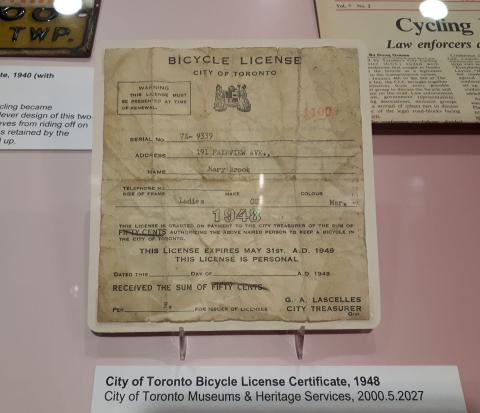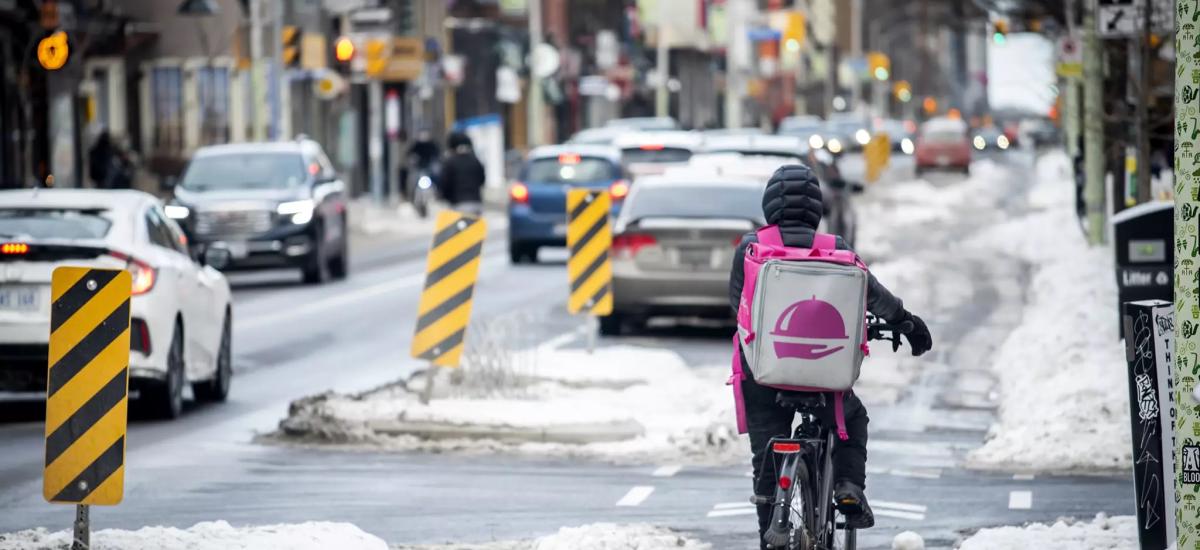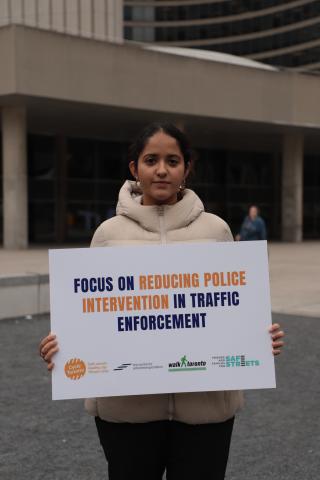
The Need to Prioritize Road Design over Licensing and Enforcement

Header photo courtesy of BlogTO.
One of the motions put forward at City Council this week seeks to require e-bike vehicles to bear a unique identifier, and for Toronto Police Services to increase their enforcement of such vehicles. We have serious concerns with this proposal. It is our position that the most effective solution to improving road safety is to build streets that are safe by design, not by relying on enforcement.
The problem with licensing
Bicycle Licensing

Bicycle licensing has been discussed time and time again in Toronto - so much so that there is even a webpage on the City of Toronto website dedicated to addressing the topic. The City lists 3 main reasons why licensing is neither feasible nor sustainable:
- The difficulty in maintaining a complete and current database
- The difficulty in licensing children
- Licensing does not change the behaviour of cyclists who are disobeying traffic laws
The motion (MM5.7 - Micro-mobility Couriers) argues that e-bikes are a different vehicle than “acoustic” bikes, and that they therefore require different rules. While some e-bike users may occasionally engage in dangerous behaviour, the same could be said for the majority of people - other cyclists, pedestrians, and motor vehicle drivers. The major difference is that the impact of an e-bike will never come close to the impact of a motor vehicle; data has demonstrated time and time again that it is motor vehicle drivers who are responsible for fatal and severe traffic incidents.
Many users of both motor vehicles and motor-assisted micro-mobility devices, such as e-bikes, are food couriers, a population whose employment is precarious, vulnerable, and undervalued. The low wages and precarious nature of “gig work”, incentivizes food couriers to bike or drive quickly (and sometimes dangerously) in order to complete as many deliveries as possible in a short time frame. Our focus instead should be on legislating the employers that profit off this structure and ensuring that couriers do not have to take risks that endanger other road users.
The problem with relying on enforcement
sonam1.jpg

The Toronto Police Service has acknowledged they have engaged in racist practices and violence toward Black, Indigenous, and other racialized communities. This is a pattern, and prompting the TPS to more aggressively police users of micro-mobility vehicles would almost definitely result in further practices of discrimination.
We saw this last summer during the tensions in High Park between cyclists and police officers. What should have been a conversation about redesigning the park to serve all road users was instead unnecessarily escalated by the presence of police officers.
We need to look at the root of the dangerous riding that some e-bike users and car drivers engage in. Many such drivers are food or general delivery couriers, a population whose employment is precarious, vulnerable, and undervalued. Deemed ‘essential’ during the various covid lock downs, these workers tend to be racialized, migrant, international students, and other people who may have difficulties accessing support and legal support.
If we are looking to increase road safety in Toronto and achieve Vision Zero, e-bikes and micro mobility devices are not where the focus of enforcement or licensing policies should be. We should be encouraging and incentivizing people to adopt active modes of transportation, and not condemning and discriminating against those who do. It is our view that this motion should never have been drafted. As we seek to expand and improve the city’s network of safe cycling and pedestrian policies and infrastructure, equity must be prioritized in all instances.
